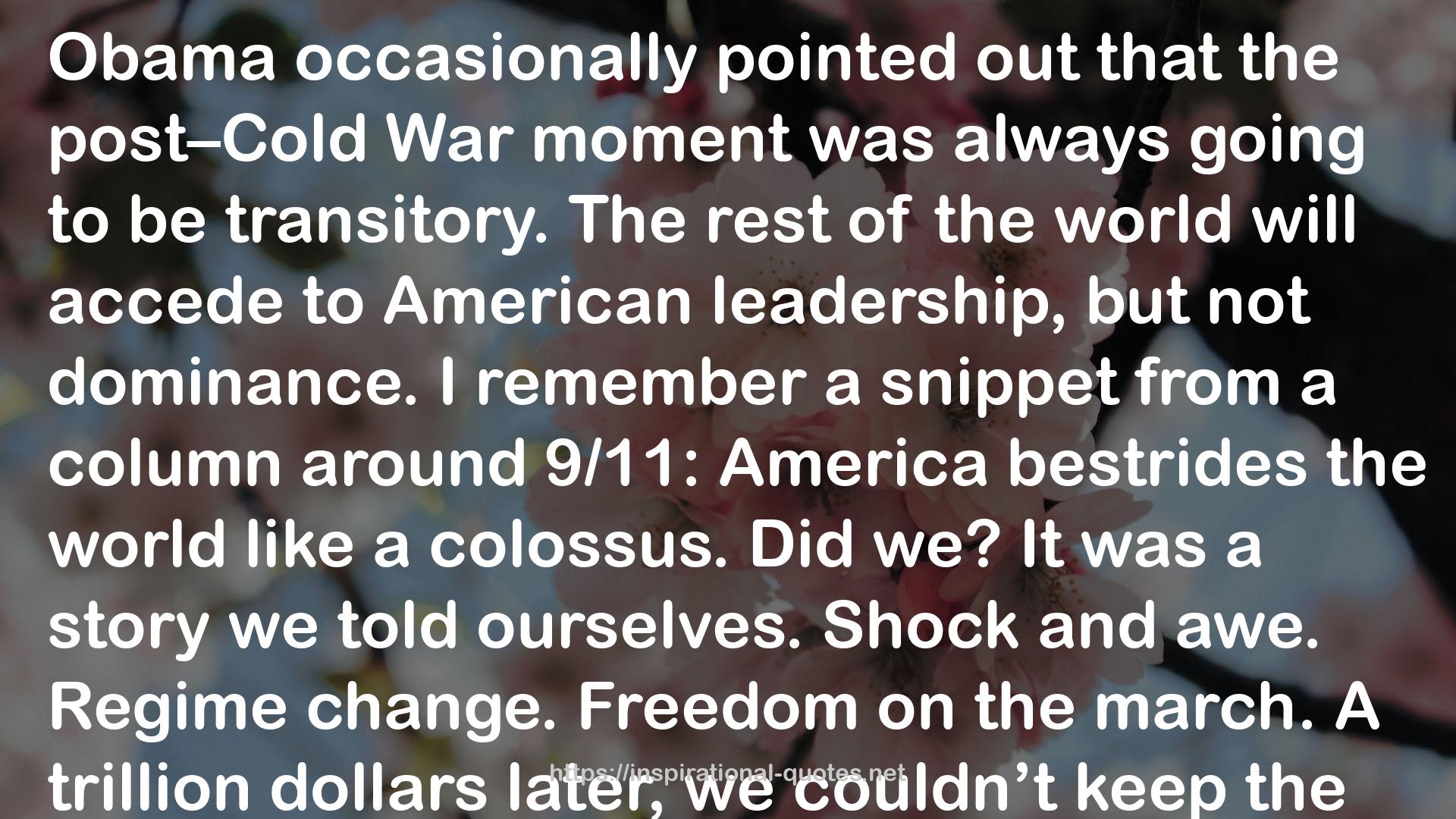" Obama occasionally pointed out that the post–Cold War moment was always going to be transitory. The rest of the world will accede to American leadership, but not dominance. I remember a snippet from a column around 9/11: America bestrides the world like a colossus. Did we? It was a story we told ourselves. Shock and awe. Regime change. Freedom on the march. A trillion dollars later, we couldn’t keep the electricity running in Baghdad. The Iraq War disturbed other countries—including U.S. allies—in its illogic and destruction, and accelerated a realignment of power and influence that was further advanced by the global financial crisis. By the time Obama took office, a global correction had already taken place. Russia was resisting American influence. China was throwing its weight around. Europeans were untangling a crisis in the Eurozone.
Obama didn’t want to disengage from the world; he wanted to engage more. By limiting our military involvement in the Middle East, we’d be in a better position to husband our own resources and assert ourselves in more places, on more issues. To rebuild our economy at home. To help shape the future of the Asia Pacific and manage China’s rise. To open up places like Cuba and expand American influence in Africa and Latin America. To mobilize the world to deal with truly existential threats such as climate change, which is almost never discussed in debates about American national security. "
― Ben Rhodes , The World As It Is: Inside the Obama White House
